
China
13:42, 25-Jan-2017
Brittle bones, unbreakable will: Internet helps ‘China Doll’ fight isolation
Updated
10:37, 28-Jun-2018
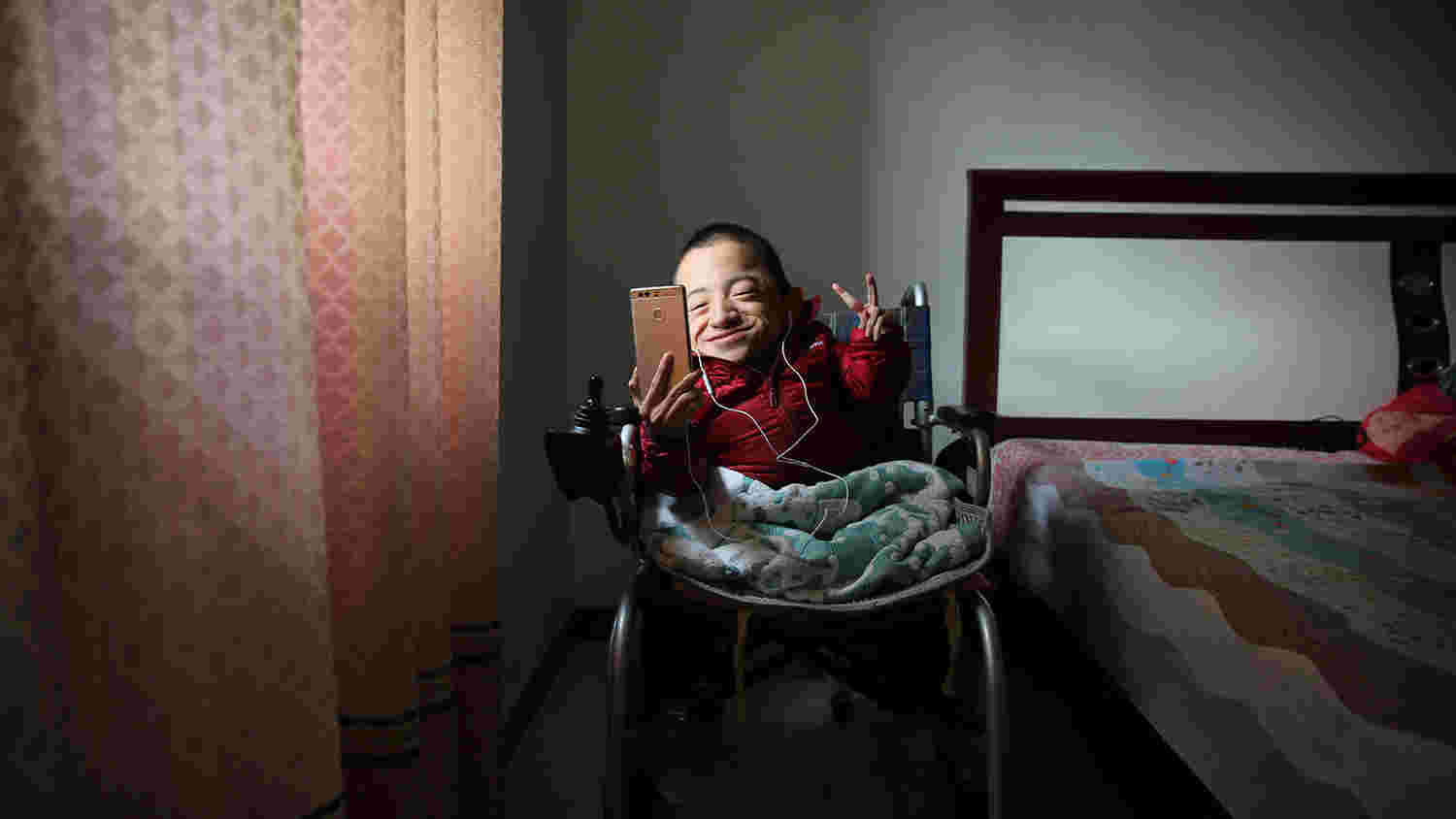
The outside world has proven to be a dangerous place for Zhuang Zhuang, but the Internet is his playground.
The 22-year-old man from Shijiazhuang, north China’s Hebei Province, suffers from Osteogenesis Imperfecta (OI), commonly known as Brittle Bone Disease – a genetic disorder characterized by fragile bones and skeletal deformity.
Zhuang Zhuang is one of over 100,000 “China Dolls” in the country. The term is coined to describe OI patients who suffer repetitive bone fractures without any specific cause, which lead to pain as well as abnormality in the bone formation.
As a kid, something as seemingly harmless as a sneeze could put him in bed for months. Indeed, Zhuang Zhuang broke his bones over a hundred times growing up, and had to be confined to bed for most of his childhood.
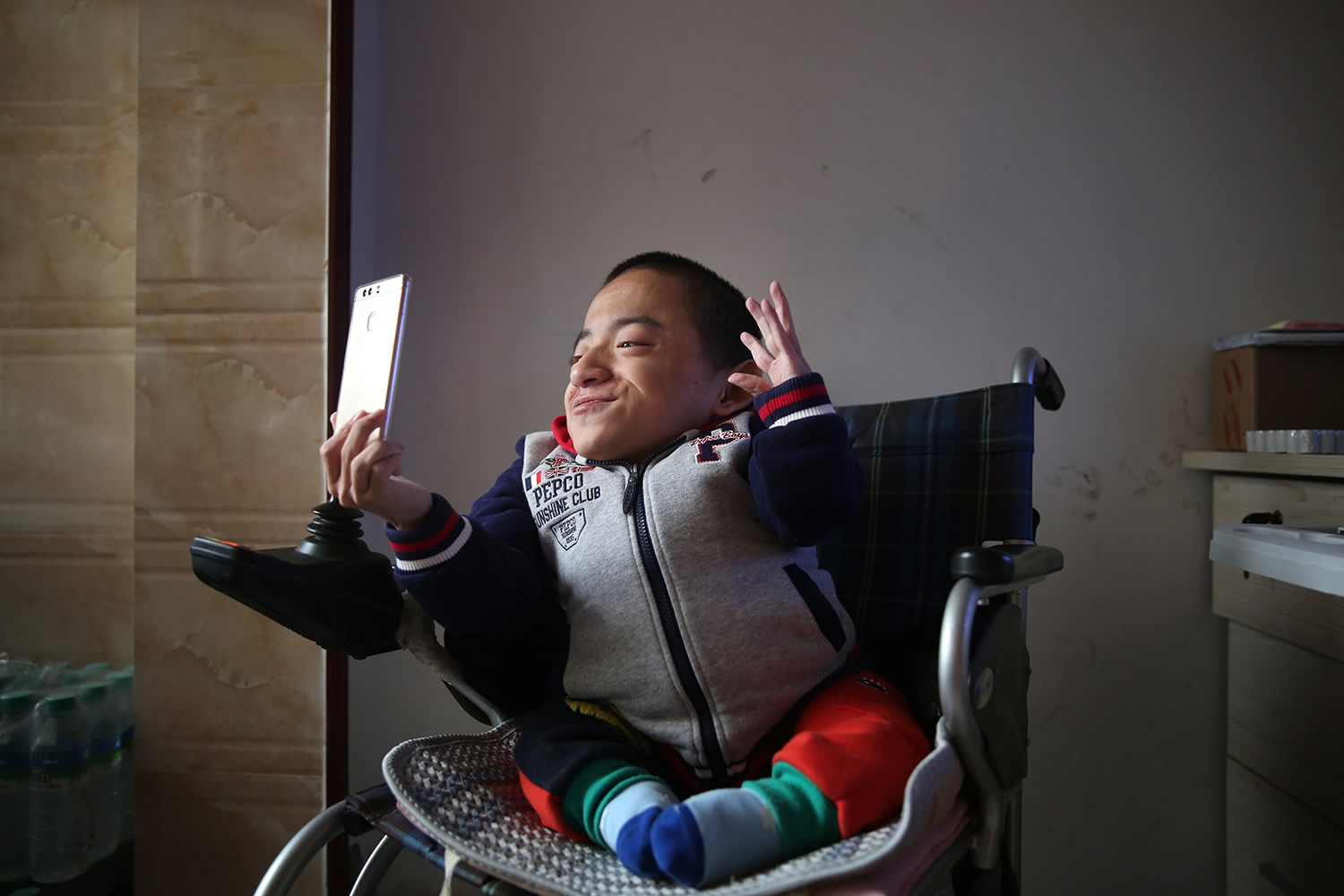
Zhuang Zhuang engages in transparent talks with his audience, answering their curious questions and singing to them. /VCG photo
Zhuang Zhuang engages in transparent talks with his audience, answering their curious questions and singing to them. /VCG photo
His thin and deformed legs also mean that Zhuang Zhuang is wheelchair-bound for the rest of his life.
His condition not only affected him, but also his parents who were devastated to see their son constantly suffering. Their pain was enough of a reason for the intrigued boy to restrain himself and silence his inquisitiveness.
“It was hard to see them sad, so I was no longer curious,” he said.

The outside world could be dangerous to Zhuang Zhuang, as his medical condition means that anything could unexpectedly break his bones. /VCG photo
The outside world could be dangerous to Zhuang Zhuang, as his medical condition means that anything could unexpectedly break his bones. /VCG photo
Studying and being social were never a luxury the boy could afford. He had to shield himself from anything and everything that could lead to bone fractures.
Poor access to medical care, education and job opportunities are some of the common problems OI patients have to deal with in China, according to a 2013 report by the China-Doll Center for Rare Disease, a non-governmental organization.
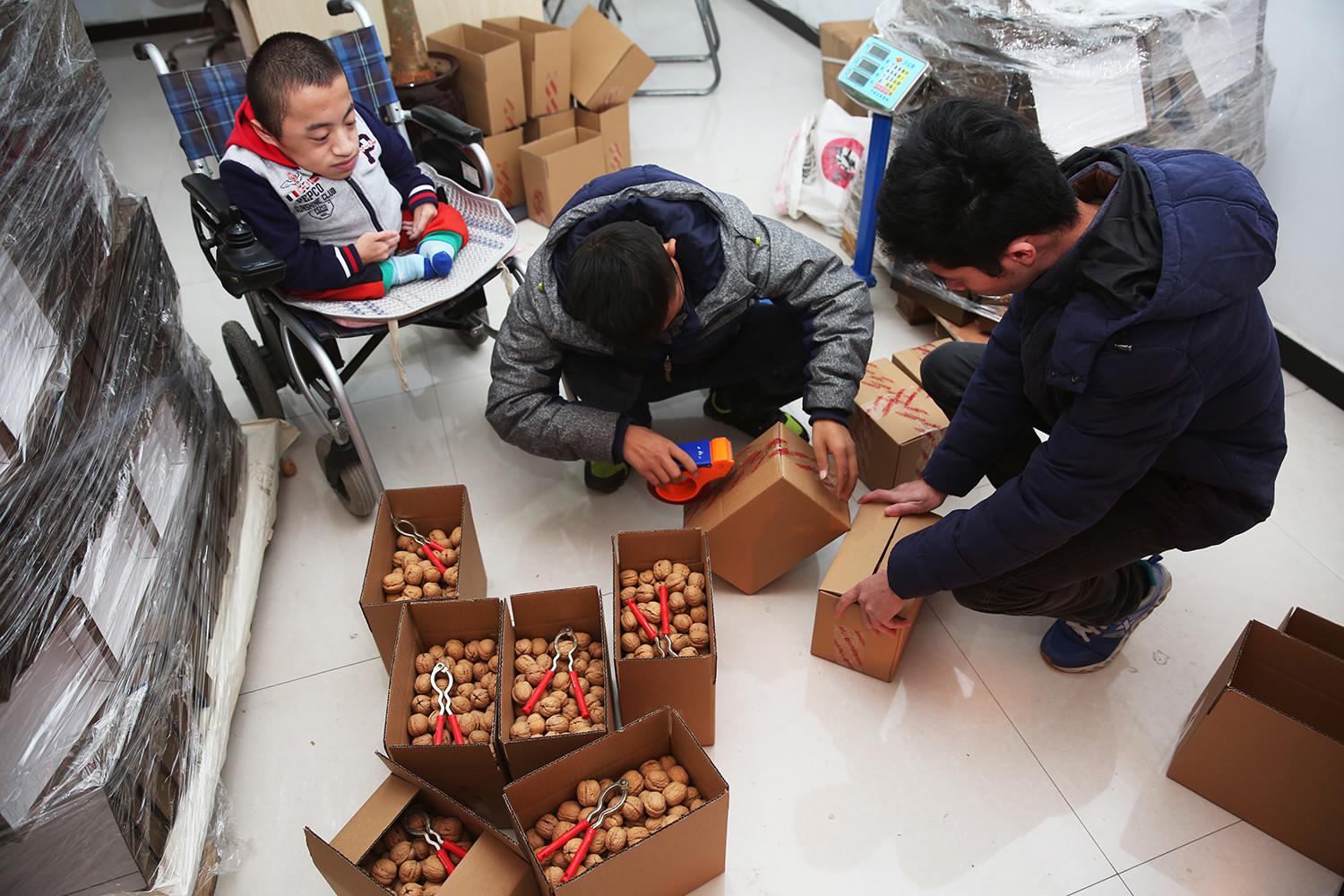
Zhuang Zhuang works at a company established by Cheng, a uremic patient. /VCG photo
Zhuang Zhuang works at a company established by Cheng, a uremic patient. /VCG photo
However tides were about to change for Zhuang Zhuang.
In 2015, a patient with uremia who started a business that hires mainly people with disabilities opened a window of opportunity that would later change Zhuang Zhuang’s life.
He got his hands on the Internet, which managed to give a sense of normality to his life, allowing him to get connected with others whom he otherwise would not be able to meet.
He rode on the wave of online streaming that is reshaping China’s Internet landscape, and became an Internet performer, singing and chatting live with his fans on live streaming applications or video sharing platforms, such as Kuaishou.
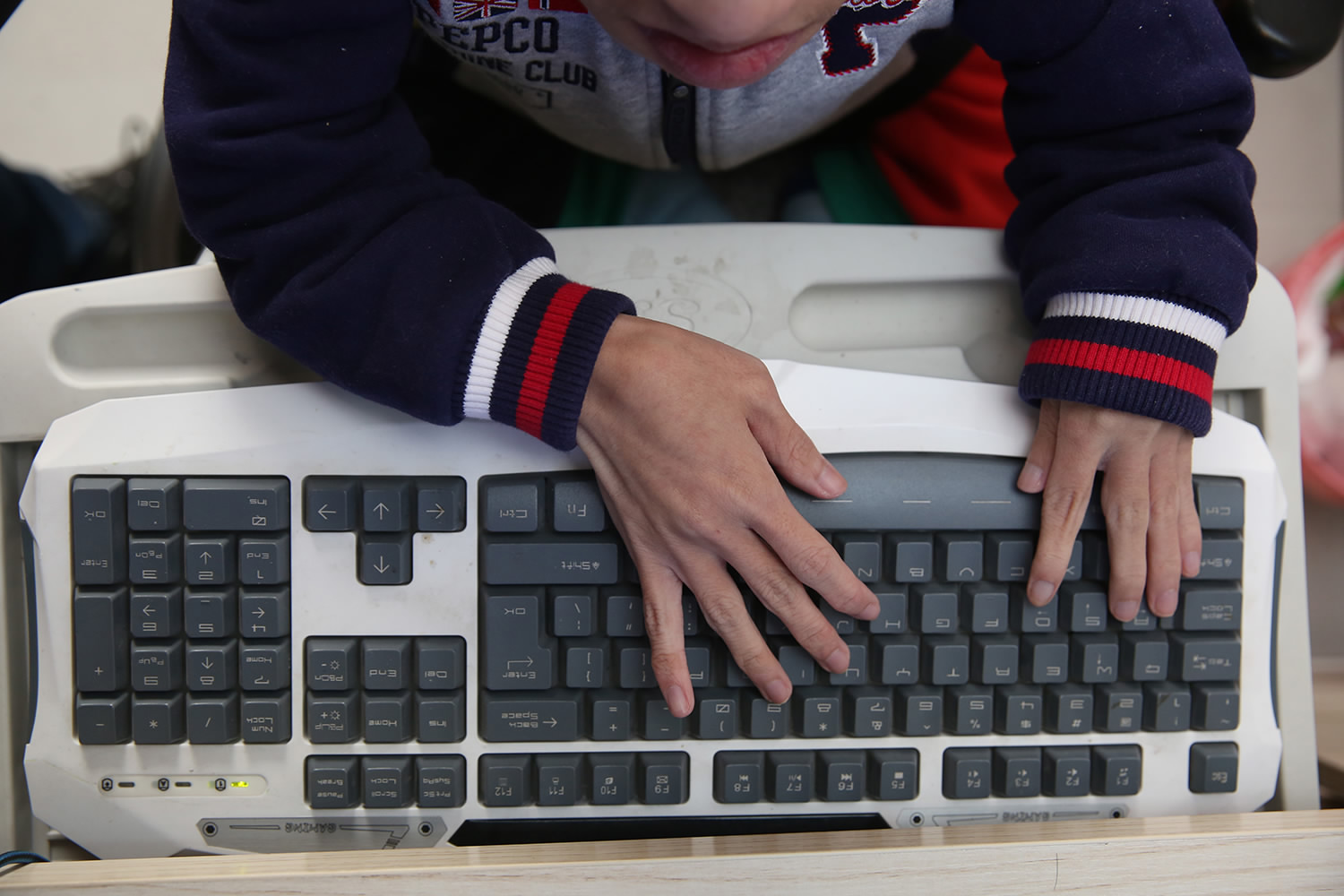
Zhuang Zhuang was introduced to the Internet late in life, but he's a fast learner. /VCG photo
Zhuang Zhuang was introduced to the Internet late in life, but he's a fast learner. /VCG photo
His fan base is still small, with no more than 500 followers – but the budding artist could easily bank on his approachable personality for more viewership.
He engages in very candid conversations with his audience, answering transparently their curious questions about his condition. In return, his followers have inspired Zhuang Zhuang to keep fighting and achieve what he thought was impossible.
“My priority now is to study, to learn more,” he said.
Life might have put obstacles in Zhuang Zhuang’s way, but his iron determination to overcome the hurdles and live life normally will sure take him very far.
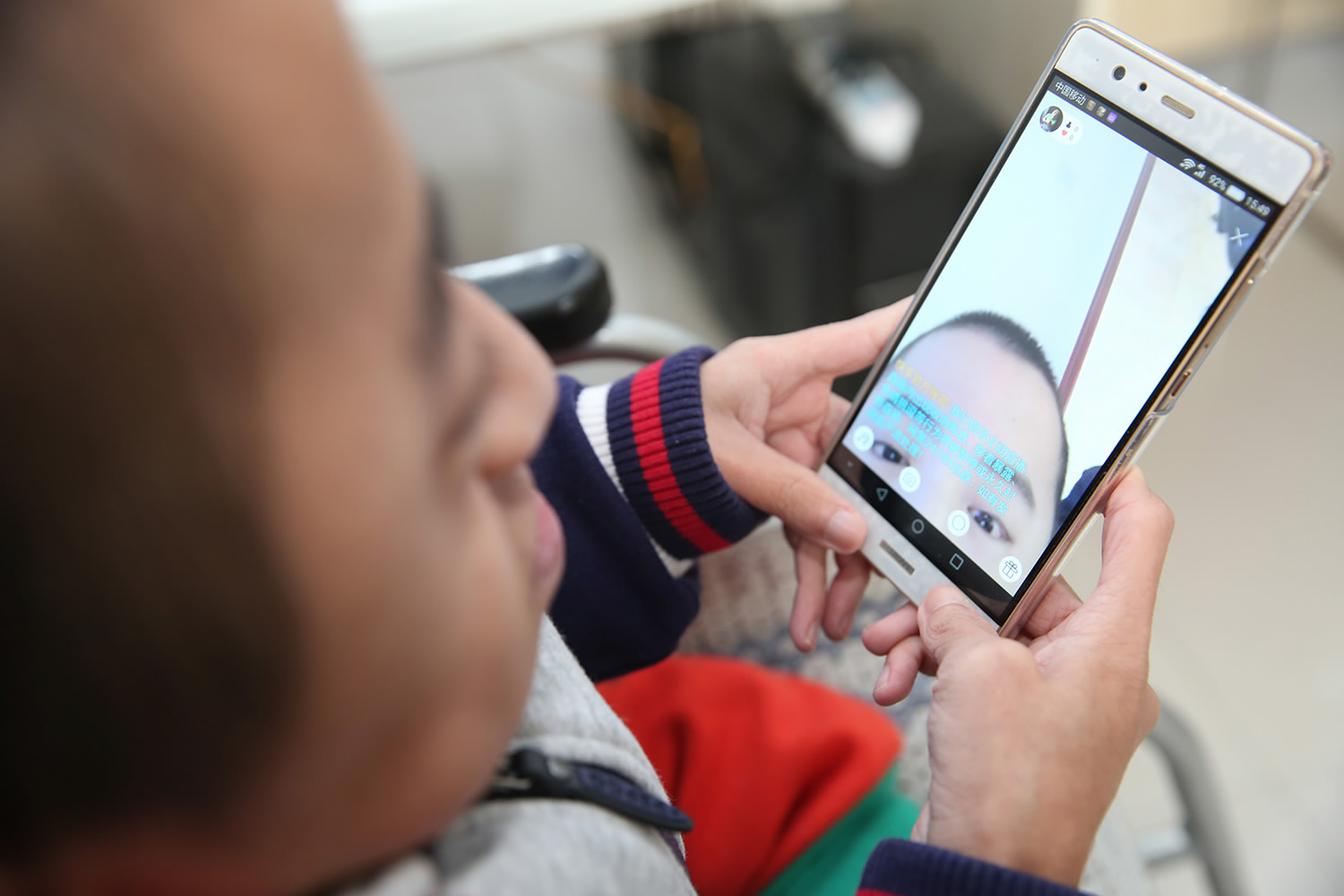
Zhuang Zhuang uses the front camera of his mobile phone as he broadcasts on Kuaishou, a live streaming app. /VCG photo
Zhuang Zhuang uses the front camera of his mobile phone as he broadcasts on Kuaishou, a live streaming app. /VCG photo

SITEMAP
Copyright © 2018 CGTN. Beijing ICP prepared NO.16065310-3
Copyright © 2018 CGTN. Beijing ICP prepared NO.16065310-3